Cup-and-Ring Stone: OS Grid Reference – SD 99904 40659
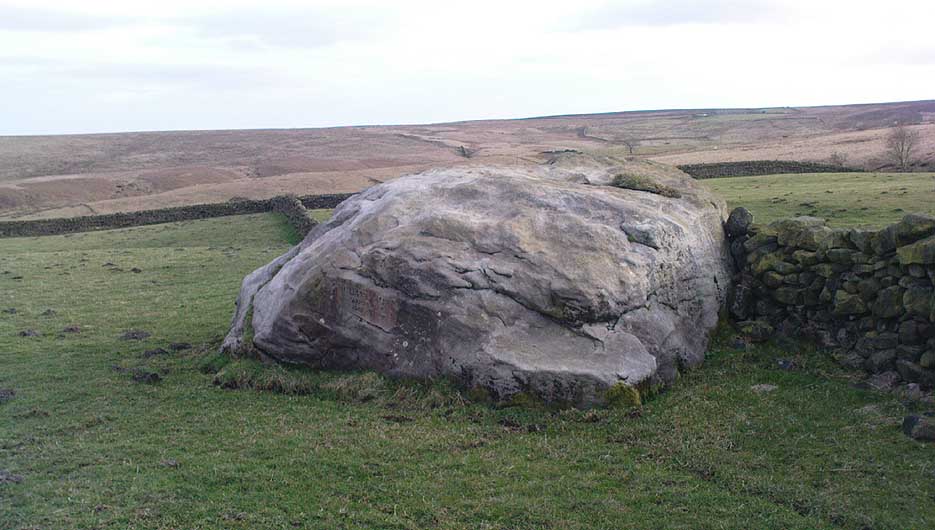
You need to get to the eastern edge of Keighley Moor by taking the country road northwest out of Oakworth (one of two roads) and head to the end of Newsholme Dean Valley at Slippery Ford. You can park up at Slippery Ford at Morkin Bridge, then walk up the road for 250 yards, turning sharp left up the dirt-track. Walk along its wibbly route for another 250 yards and watch out for the large boulder in one of the fields on the left. That’s it!
Archaeology & History
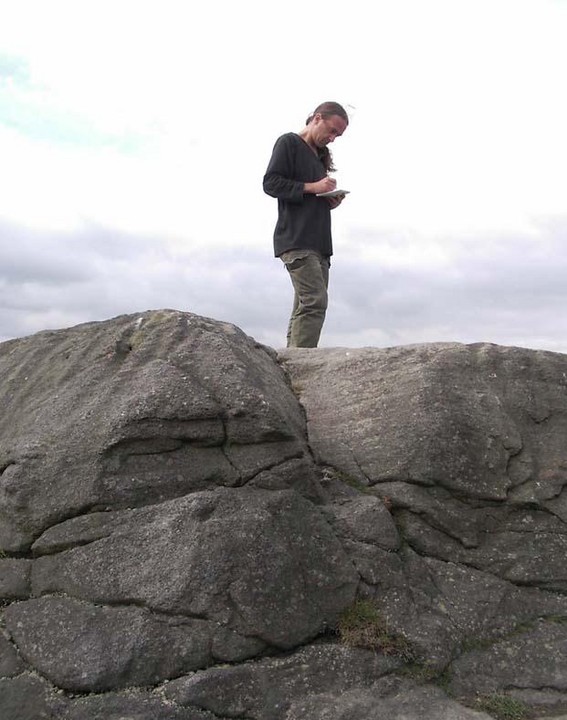
I came across this previously unrecorded carving in August 2006 after returning from an amble over the moors in the pouring rain and was fortunate to be able to make out the faint design, for, as with most cup-and-ring carvings, depending on the daylight conditions determines whether the carving is visible or not. Although some of the cup-marks on here are quite distinct, several are very faded and — as usual! — there are a number of dubious ones to work out!
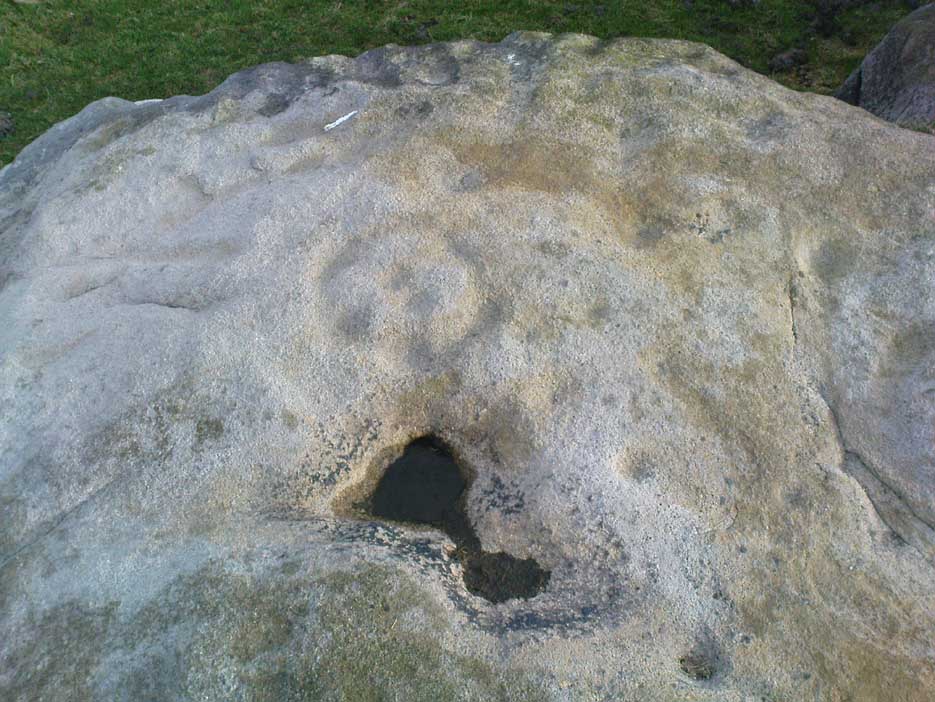
The carving gets its name due to the rock having a carved epitaph for an old local farmer — called William Walker — on its eastern face. There are also the letters “I.W.” carved on its sloping upper face, which looks typical of boundary mark notation, though this stone aint been on any boundary for at least 160 years (I aint checked earlier records). But much older on top of the rock we find perhaps as many as 20 cup-markings, which at first I first thought might be natural, but this was suddenly halted when I noticed in the bad light a large circle with several cups along it, inside of which were two other cups. On the southern edge of the rock it seems there may be another 3 or 4 cup-marks, one with a line running down (possibly natural). I took a couple of pictures when I first found it but they weren’t too well-defined. The ones here are a little better.
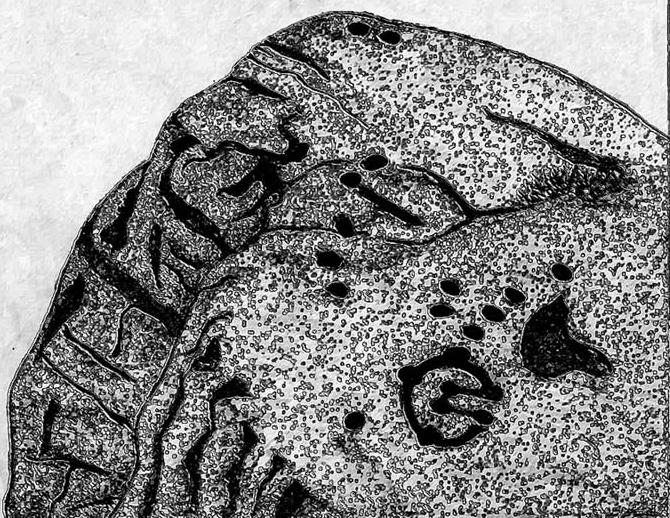
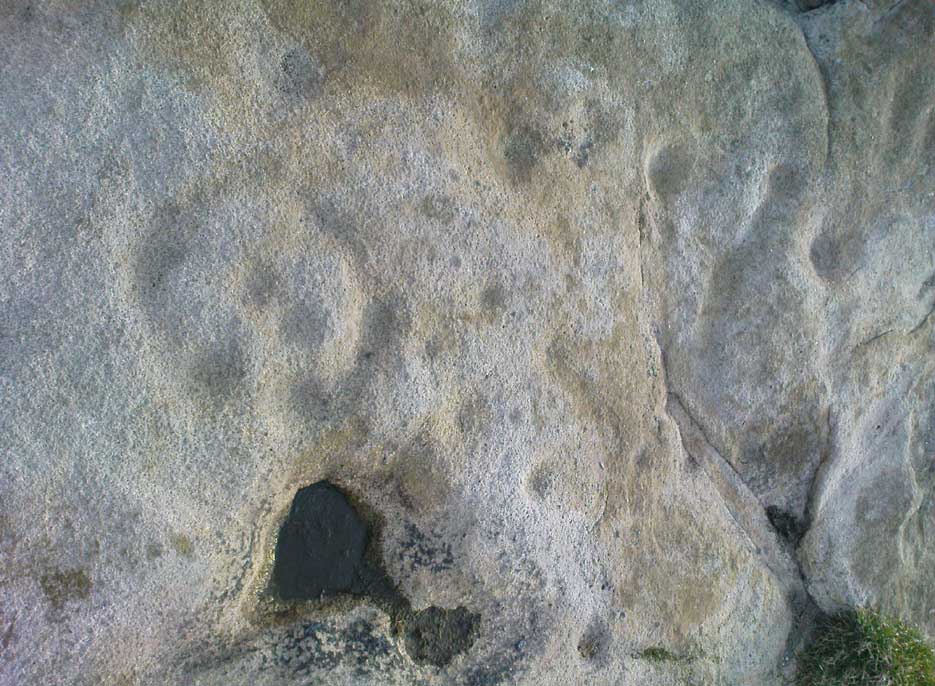
The main feature here is obviously the curious ‘ring’ above a small eroded basin, consisting of several cups, with two in the centre. On closer examination it appears that the ‘ring’ is in fact an unfinished circle with the two central cups having lines running from them to the incomplete ring, leaving a gap or opening at the bottom. The lack of other cup-and-ring carvings in the vicinity (apart from the simple Cob Stone, 750 yards away below Grey Stones Hill) is an oddity. A few more ventures onto the local hills are definitely required to see if anything else can be found!
Acknowledgements: With thanks to Angela Hainsworth for her assistance and sketch of the design.
© Paul Bennett, The Northern Antiquarian
The map could not be loaded. Please contact the site owner.